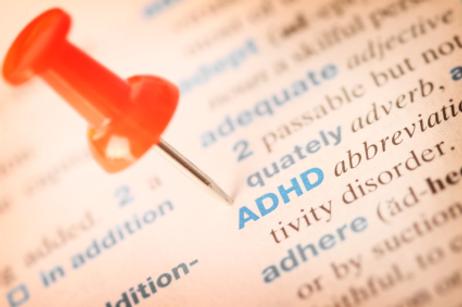According to research, nearly 92 percent of adults who are diagnosed with Attention Deficit Hyperactivity Disorder (ADHD) remain untreated until the age of 18 or older! As reported by the organization Adult ADHD, nearly all adults who discover their condition later in life wish they had known about their diagnosis at a much younger age, as early treatment could have prevented many academic struggles, social issues, and professional problems.
Most experts assert that so many adults remain untreated for ADHD due to a mere lack of information. As Adult ADHD further explains, 77 percent of pediatricians believe that a lack of information regarding ADHD is the primary problem that prevents children from receiving early diagnoses and treatments.
With so many individuals discovering their diagnosis of ADHD as adults, community college students who are struggling academically may need to review the potential symptoms to find out if ADHD could be one of the causes of their personal concerns and toils. If ADHD is a specific concern for adult students attending community college, there are often support programs and resources for students to receive extra support and assistance.
What is ADHD?
ADHD is a disorder that causes the brain to function in a different manner than a “normal” brain. While all brains function uniquely, an individual with ADHD often experiences greater difficulty controlling their thoughts, acting patiently, interacting socially, and so forth.
While the problems of ADHD are centered in the brain, it is important to note that the issues of ADHD are simply physiological, pertaining to the construction and function of the brain. ADHD is not a psychological disorder.
As Psych Central explains, there is an array of signs and symptoms that may indicate forms of ADHD. Specifically,
symptoms of ADHD in adults include:
- Difficulty keeping focus and attention
- Difficulty concentrating on reading unless it’s interesting
- Easily irritated/agitated and upset
- Difficulty following conversations in groups
- Speaking without thinking
- Impulsive tendencies
- Difficulty planning
- Always moving, difficulty sitting still
- Many running/racing thoughts
- Inability to focus on one task/project at a time
- Difficulty finishing tasks/projects
- Disorganized thoughts/daydreaming
As the symptoms of ADHD are so vast, many adults quickly realize that ADHD has impacted their academic performance, social and personal relationships, as well as their overall attitude and behavior. In fact, as Adult ADHD reveals, 95 percent of teachers believe that individuals with ADHD who are left untreated will experience a negative impact on their school performance abilities. Adding to this, 90 percent of teachers believe that “Untreated ADHD usually leads to disruptive behavior in the classroom and has a negative effect on social skills.”
As ADHD can impact one’s overall personality and interactions – and certainly influence his or her school performance abilities – community colleges are developing new programs to help provide information and support for students who may be coping with Adult ADHD.
Community College Students and Adult ADHD
For students who are seeking more information or more resources regarding Adult ADHD, there are an array of programs at various community college that provide tools for support. For example, Richland Community College, located in Decatur, Illinois, provides students with Teaching and Learning Support Services that specifically highlights information on Adult ADHD.
Adding to the information and services at Richland, students attending Tacoma Community College in Washington can also utilize additional tools to cope with Adult ADHD. Tacoma provides students with “Access Services,” which allow students with various learning needs and/or disabilities to take advantage of personalized support and assistance.
As Tacoma explains, students with special concerns and needs can contact the Accommodations Coordinator six weeks before classes begin in order to make necessary arrangements for improved student success. Arrangements for services may include extending the time for testing, assigned tutors for support, organizational assistance, professional liaison guidance, and so forth. In specifically focusing on issues related to Adult ADHD, Tacoma explains that students using “Access Services” can find information on how to become evaluated and diagnosed if they feel they are coping with untreated ADHD.
For students who are seeking information about Adult ADHD at their own community college, individuals can check with the campus advisor and/or learning resources office to find out more about information on diagnosis, academic support, and additional resources.
Questions? Contact us on Facebook @communitycollegereview.














